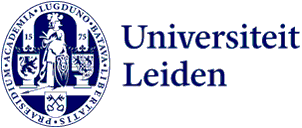
How Europe will be better prepared for the next pandemic
The European PANVIPREP research project started at the Leiden University Medical Center on 11 March. The participants are virologists, biochemists and pharmacists from 14 European countries. Their mission is to develop antiviral drugs to protect Europe during pandemics. At least two such antivirals should be delivered within four years.
Global virus outbreaks such as the coronavirus pandemic continue to pose a major threat to public health. So we need to prepare. Vaccines alone are not enough: the preparedness toolkit for future virus outbreaks should also contain safe and powerful antiviral drugs.
‘This project is the continuation of the approach taken during the coronavirus pandemic’, says Eric Snijder, Professor of Virology at the LUMC. ‘Europe wants to be better prepared for the next pandemic. If we develop antivirals now, we will be able to use them in future virus infections.’
No vaccine
Vaccine production can easily take nine to twelve months. ‘You can’t stockpile a vaccine in advance’, says Snijder. ‘But what you can do is develop antivirals with the widest possible spectrum of action and ensure they are available.’
The difference between vaccines and virus inhibitors is in how they fight the virus. ‘Vaccines mainly focus on the outside of a virus and that can easily change, reducing the vaccine’s efficacy. Antivirals target other parts of a virus, which makes them both longer lasting and more widely applicable for multiple viruses from the same family’, says Snijder.
Five virus families
The PANVIREP consortium consists of 14 European partners with expertise in virology, protein chemistry, medical chemistry, pharmacology and AI systems. They are focusing on five important virus families that organisations like the WHO predict could cause a pandemic: alphaviruses, coronaviruses, enteroviruses, flaviviruses and paramyxo- and pneumoviruses.
‘We can’t predict when exactly a pandemic will strike’, says Snijder, ‘but the threat is there and is increasing. Urbanisation, globalisation and climate change can cause virus outbreaks to spiral out of control faster. The effects go further than public health. Pandemics also threaten our economy and trust in government. So we have to take steps now to be better prepared in future.’
Good start
The consortium has funding from the EU Horizon Europe innovation programme and is coordinated by the LUMC. ‘The LUMC’s research is already contributing in various ways to pandemic preparedness’, says Snijder. ‘But developing antivirals takes medium-term commitment and investments. Joining forces once again within Europe means we’re getting off to a good start.’
